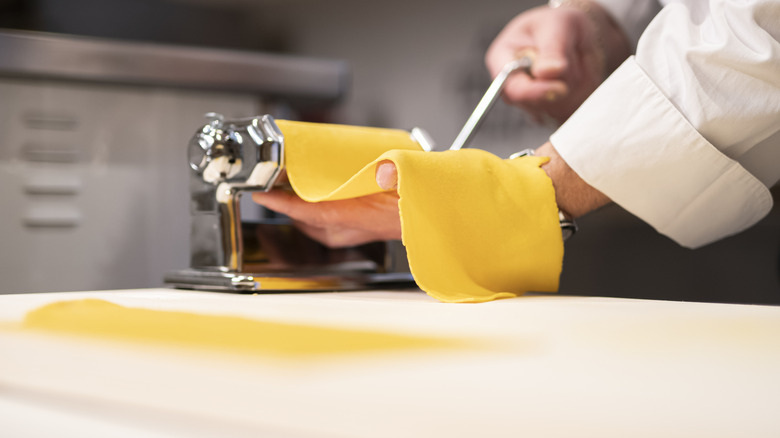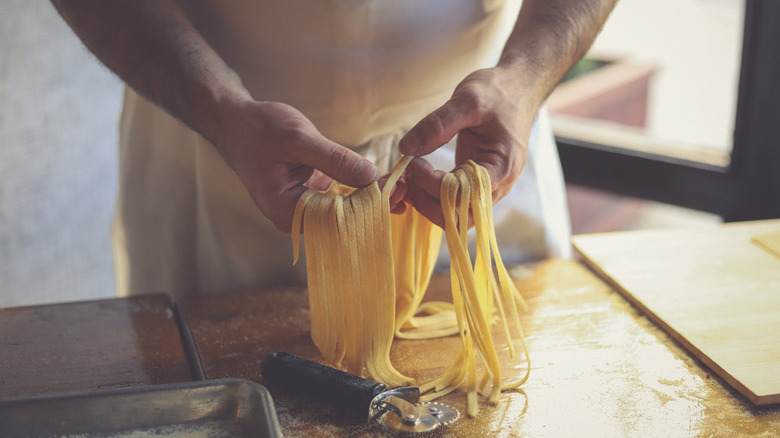The Best Flour To Use When Making Pasta
If your comfort food list starts and ends with pasta, you're not the only one. According to the National Pasta Organization, the average American eats up to 20 pounds of it every year, and we love it so much at Food Republic that we've got at least 24 recipes for easy weeknight pasta dinners so that we can eat pasta any night of the week.
If you're ready to take your love of spaghetti and tagliatelle to the next level, it's also pretty easy to make your own fresh pasta at home with just a few simple ingredients. But don't go reaching for any old flour if you're going to make homemade fettuccine or pappardelle, according to Jasper J. Mirabile Jr., the Chef and Owner of Jasper's Restaurant in Kansas City, Missouri. If you want to make restaurant-quality fresh pasta like the kind he serves in his award-winning Italian restaurant, the chef recommends using an "00" variety of flour, which is an Italian flour made with durum wheat that's got a smooth texture similar to American cake flour.
"In the Italian flour grading system, '00' is the highest grade, indicating an extremely fine grind," said Chef Mirabile, adding that the fine feel of the flour makes a big difference when you're kneading and rolling out the pasta dough.
What is 00 flour?
Even if you've shopped for flour all your life, chances are you've probably never seen a bag of "00" flour next to the trusty all-purpose (AP) stuff at the grocery store. That's because in the U.S., "00" flour is a specialty product that you either have to order online or source from a specialty foods store that stocks Italian ingredients.
Unlike flour from the U.S., which is categorized by its protein content (cake, all-purpose, and bread flour are the most common), Italian flours are labeled based on the texture, which ranges from 00 (the finest) to 2 (the coarsest). While it's totally acceptable to use regular American AP flour when making pasta from scratch as it has a similar protein content to "00," the Italian flour will make a noticeably better dough, said Chef Mirabile, who is also the host of the radio show "Live From Jasper's Kitchen" on KCMO Talk Radio.
"The pasta dough is guaranteed to come out silky and smooth," he said, explaining that the fine flour is especially ideal for delicate styles of egg pasta like tagliatelle and ravioli. The dough will "still [be] very elastic," he said, while also being easier to work with than doughs made with coarser flour. So if the quality of the noodles in your homemade cacio e pepe is important (as it should be), make sure you're using only the best Italian "00" flour in the dough, so you get the best results.


